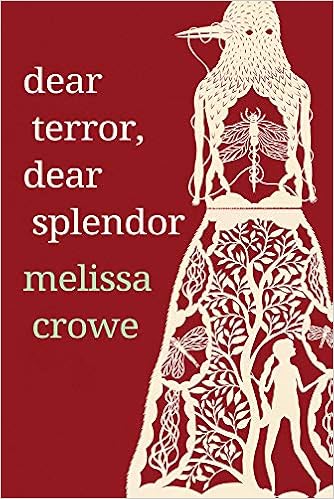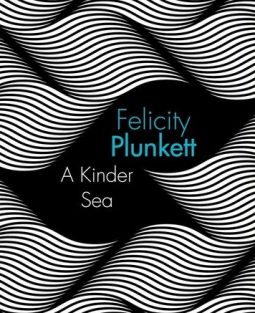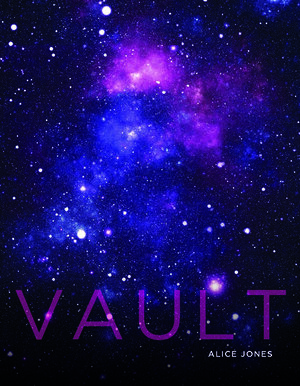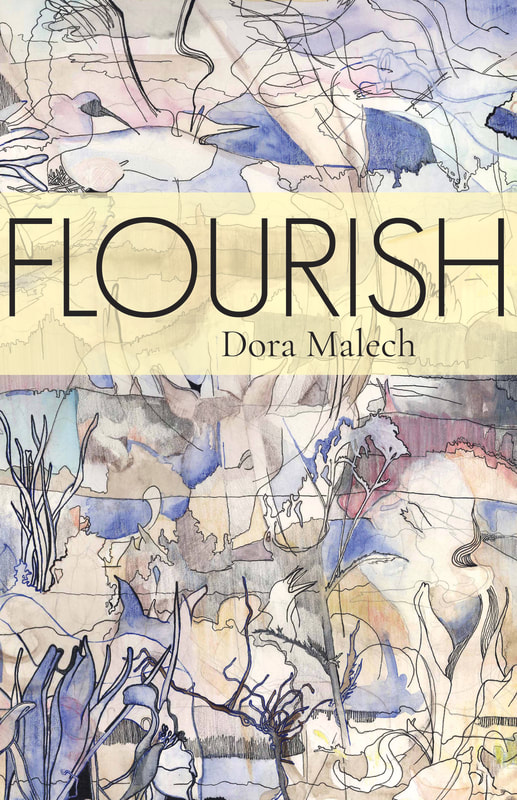 You don’t have to be a card carrying poetry lover to fall in love with the poems in this book. I’m planning to put the anthology on my coffee table and look forward to the conversations it sparks with guests. (That is when we are allowed to have guests again. I am writing to you from the heart of social distancing.) Some of these poems turned me on. Some of them made me long to be the person being kissed for the attention and tenderness of it. Some of them made me cry.
You don’t have to be a card carrying poetry lover to fall in love with the poems in this book. I’m planning to put the anthology on my coffee table and look forward to the conversations it sparks with guests. (That is when we are allowed to have guests again. I am writing to you from the heart of social distancing.) Some of these poems turned me on. Some of them made me long to be the person being kissed for the attention and tenderness of it. Some of them made me cry.
Category: Book Reviews
Book Reviews
A review of Dear Terror, Dear Splendor by Melissa Crowe
 This intricate mixture of joy and grief, celebration and fear, is expressed over and over again in these poems. In “Damage,” a poem about her young daughter mistaking the words damn it for damage, the poet reflects, hearing her daughter’s mistake when she stubs her toe or startles when a door slams, “damage [is] the right word.
This intricate mixture of joy and grief, celebration and fear, is expressed over and over again in these poems. In “Damage,” a poem about her young daughter mistaking the words damn it for damage, the poet reflects, hearing her daughter’s mistake when she stubs her toe or startles when a door slams, “damage [is] the right word.
A review of The Boy in the Striped Pyjamas by John Boyne
 Set in Nazi Germany during World War II, The Boy in the Striped Pyjamas takes the reader on a journey through the eyes of a young, ignorant boy. This story filled me with sadness, but also made me laugh out loud. I would recommend this book for both boys and girls aged 12 to 15 years of age.
Set in Nazi Germany during World War II, The Boy in the Striped Pyjamas takes the reader on a journey through the eyes of a young, ignorant boy. This story filled me with sadness, but also made me laugh out loud. I would recommend this book for both boys and girls aged 12 to 15 years of age.
A review of A Kinder Sea by Felicity Plunkett
 Though these are personal poems, rooted in love, loss, grief, and rebirth, there is a strong, though subtle underlying politic which takes the form of advocacy. Collective empowerment is an important theme throughout the work, linking back to the title–kindness as a radical act.
Though these are personal poems, rooted in love, loss, grief, and rebirth, there is a strong, though subtle underlying politic which takes the form of advocacy. Collective empowerment is an important theme throughout the work, linking back to the title–kindness as a radical act.
An interview with John Fitch and Max Frenzel
 The authors of Time Out talk about their book and the backstories behind it, society’s view of “noble leisure” time, the culture (or cult) of “busyness” and how it can be unlearned, macro and micro practices for quality time off, the importance of solitude, and lots more.
The authors of Time Out talk about their book and the backstories behind it, society’s view of “noble leisure” time, the culture (or cult) of “busyness” and how it can be unlearned, macro and micro practices for quality time off, the importance of solitude, and lots more.
A review of Vault by Alice Jones
 This collection is a word feast to be read over days, not in one sitting, and these poems by Alice Jones deserve to be savored. Despite frequent medical and historical multisyllabic vocabulary, many of the poems regard common social phenomena. Readers will appreciate each word as they feel the momentum of stylistic and linguistic rhythms within and between sentences.
This collection is a word feast to be read over days, not in one sitting, and these poems by Alice Jones deserve to be savored. Despite frequent medical and historical multisyllabic vocabulary, many of the poems regard common social phenomena. Readers will appreciate each word as they feel the momentum of stylistic and linguistic rhythms within and between sentences.
A review of The Albatross Around the Neck of Albert Ross by Geoffrey Gatza
 Gatza’s collection of short stories highlight important ideas such as connecting with family members, living the fullest life, challenging how to think beyond the obvious, and learning how to handle grief. Each of these lessons are truly important for both children and adults alike. What connects each of these stories, however, is the ability to experience each day with someone that readers care about whether that be a family member, a parent, a friend, or a sibling.
Gatza’s collection of short stories highlight important ideas such as connecting with family members, living the fullest life, challenging how to think beyond the obvious, and learning how to handle grief. Each of these lessons are truly important for both children and adults alike. What connects each of these stories, however, is the ability to experience each day with someone that readers care about whether that be a family member, a parent, a friend, or a sibling.
A review of The Alpaca Cantos by Jenny Blackford
 Even at its most intense, Blackford’s poetry never stops being warm, accessible and humorous. The Alpaca Cantos is beautifully presented with thick paper, careful layouts, with lovely drawings by artist Gwynneth Jones. These are poems that are both complex and simple, tragic and yet infused with delight and an almost impish joy in the day-to-day.
Even at its most intense, Blackford’s poetry never stops being warm, accessible and humorous. The Alpaca Cantos is beautifully presented with thick paper, careful layouts, with lovely drawings by artist Gwynneth Jones. These are poems that are both complex and simple, tragic and yet infused with delight and an almost impish joy in the day-to-day.
A review of Flourish by Dora Malech
 As in Bishop’s works, Malech seems to present some of her poems in utter simplicity, then surprises with the unexpected turn at the end. “Dear Reader” (p. 67) does this quite successfully. Some of the poems appear enigmatic, but when studied, reveal a coherent whimsy. “Come Again” (p.55) plays on the comedy of typos and “Euscorpius italicus” ( p.37) on the fear of spiders, both done with commendable control.
As in Bishop’s works, Malech seems to present some of her poems in utter simplicity, then surprises with the unexpected turn at the end. “Dear Reader” (p. 67) does this quite successfully. Some of the poems appear enigmatic, but when studied, reveal a coherent whimsy. “Come Again” (p.55) plays on the comedy of typos and “Euscorpius italicus” ( p.37) on the fear of spiders, both done with commendable control.
An interview with R.W.R McDonald
 The author of The Nancys talks about his lifelong passion for Nancy Drew, his inspirations, working with top-notch editors, his novel writing workshop at Faber, world building, and lots more.
The author of The Nancys talks about his lifelong passion for Nancy Drew, his inspirations, working with top-notch editors, his novel writing workshop at Faber, world building, and lots more.